As a permanent representation of the degree programme’s stakeholders, the Steering committee is made up of members from the world of work, culture and research.
Its members are: the degree programme coordinator, three professors appointed by the Center’s council, one student representative, one representative of the Center’s administrative staff, and up to twelve external members appointed by the Center’s council as representatives of the world of work, culture and research. Depending on the matters to be dealt with, the membership can be extended to representatives of local industries, local public entities, the head of the Center’s quality assurance committee.
The Steering committee shall elect from among its members a Coordinator who presides over it, a deputy coordinator, who shall take the coordinator’s place when the latter is prevented from attending, and a secretary, who shall minute the meetings.
Members
Internal members
Responsabile del Corso di Studio
Gianfranco Anfora
 È professore associato di Entomologia Generale ed Applicata presso il Centro Agricoltura Alimenti Ambiente.
È professore associato di Entomologia Generale ed Applicata presso il Centro Agricoltura Alimenti Ambiente.
Ha conseguito il Dottorato di Ricerca in Difesa e qualità dei prodotti agroalimentari presso l’Università del Molise. Ha focalizzato l’attività di ricerca sullo studio della comunicazione degli insetti di interesse agrario tramite identificazione di composti volatili biologicamente attivi. Sta sviluppando programmi di controllo biologico ed integrato nei confronti di specie autoctone ed aliene tramite l’utilizzo di insetti parassitoidi, bioagrofarmaci e semiochimici. Partecipa a progetti di ricerca nazionali ed internazionali inerenti la biologia e l’ecologia di insetti di interesse agrario e la difesa delle piante da frutto e della vite. È autore o coautore di oltre 200 comunicazioni scientifiche e coinventore di un brevetto europeo sul tema dell’agricoltura sostenibile e della lotta integrata agli insetti.
Docenti designati dal Consiglio di Centro
Massimo Bertamini
 Coordinatore del Corso di laurea in Viticoltura ed Enologia presso il Centro Agricoltura Alimenti Ambiente e professore associato di Fisiologia della vite e Viticoltura Applicata. Laureato nel 1986 in Scienze Agrarie all’Università degli Studi di Padova, enologo. Ha lavorato per 31 anni come ricercatore presso la Fondazione Edmund Mach, dove ha coordinato Dipartimenti del Centro di Ricerca e di quello di Istruzione e Formazione. Si è occupato di ricerca e sperimentazione nell’ambito della fisiologia vegetale, sulle relazioni pianta ambiente e su tecniche gestione dei vigneti. È stato docente presso il Corso per la specializzazione in Enotecnico e a partire dal 1996 si è occupato del coordinamento e della gestione dei corsi di livello universitario Viticoltura ed Enologia attivati presso la Fondazione Edmund Mach, anche con incarichi di docenza.
Coordinatore del Corso di laurea in Viticoltura ed Enologia presso il Centro Agricoltura Alimenti Ambiente e professore associato di Fisiologia della vite e Viticoltura Applicata. Laureato nel 1986 in Scienze Agrarie all’Università degli Studi di Padova, enologo. Ha lavorato per 31 anni come ricercatore presso la Fondazione Edmund Mach, dove ha coordinato Dipartimenti del Centro di Ricerca e di quello di Istruzione e Formazione. Si è occupato di ricerca e sperimentazione nell’ambito della fisiologia vegetale, sulle relazioni pianta ambiente e su tecniche gestione dei vigneti. È stato docente presso il Corso per la specializzazione in Enotecnico e a partire dal 1996 si è occupato del coordinamento e della gestione dei corsi di livello universitario Viticoltura ed Enologia attivati presso la Fondazione Edmund Mach, anche con incarichi di docenza.
Ilaria Pertot
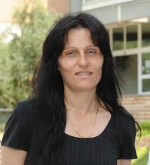 Coordinatrice del Dottorato di ricerca in Scienze agroalimentari e ambientali e professoressa ordinaria di Patologia vegetale.
Coordinatrice del Dottorato di ricerca in Scienze agroalimentari e ambientali e professoressa ordinaria di Patologia vegetale.
Ha conseguito il dottorato di ricerca in protezione delle colture presso l’Università di Udine e ha continuato la carriera nella ricerca occupandosi principalmente di ricerca e sviluppo di metodi a basso impatto per la difesa delle piante da patogeni e parassiti, effetto del cambiamento climatico sulle piante e sui loro parassiti e sulle malattie nuove o emergenti delle piante. Ha svolto ricerca in centri di ricerca negli Stati Uniti (UC Berkeley), Svizzera (Politecnico Federale di Zurigo) e Israele (Volcani Center). Nell’ambito di un progetto di ricerca europeo ha recentemente lavorato in Belgio come direttore scientifico presso un’azienda che sviluppa biopesticidi e come ricercatrice presso una multinazionale dell’agrofarmaco. È inventrice di 4 brevetti relativi a biofungicidi ed autrice di più di 200 pubblicazioni scientifiche e tecniche. È vice presidentessa dell'International Organisation for biological Control and integrated pest management (IOBC-wprs) e coordinatrice di progetti di ricerca internazionali.
Rappresentante degli studenti
Samuel Martintoni
 Studente di viticoltura ed enologia presso il centro Agricoltura Alimenti Ambiente al secondo anno di corso. Diplomato presso il Liceo scientifico “Gandhi Merano”.
Studente di viticoltura ed enologia presso il centro Agricoltura Alimenti Ambiente al secondo anno di corso. Diplomato presso il Liceo scientifico “Gandhi Merano”.
Delegato per la Qualità del C3A
Sihem Dabbou

She is an animal nutrition researcher; currently working in the AGR20 research field. She holds a PhD in Agricultural, Forest and Food Sciences at the University of Torino. Her main research interests are represented by the utilization of feed alternatives (i.e., insects and agro-industrial byproducts) and additives in animal nutrition (rabbit, poultry and fish).
She has recently started working in the insect farming as well. She is the author and co-author of over 50 scientific publications. She participates in relevant national and international research projects on animal nutrition and product quility.
Responsabile amministrativa
Laura Salvetti
External members
Confagricoltura del Trentino
Diego Coller, Presidente
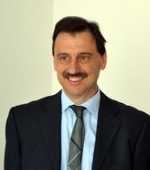 Imprenditore. Diplomato presso l’Istituto Agrario di San Michele all’Adige. Direttore di Confagricoltura del Trentino. Direttore della Società Cooperativa ASTRO – Associazione Troticoltori Trentini. Presidente del Consiglio di Amministrazione della Cantina Sociale Roverè della Luna - Società Cooperative Agricole. Sindaco supplente della Cassa Rurale di Roverè della Luna – Banca di Credito Cooperativo. Consigliere CAVIT – Cantina viticoltori – Consorzio Cantine Sociali del Trentino. Amministratore di Agricoltura Trentina Servizi. Presidente del Consiglio di Amministrazione Trentino Fresco. Amministratore Consorzio Trentino Piscicoltura.
Imprenditore. Diplomato presso l’Istituto Agrario di San Michele all’Adige. Direttore di Confagricoltura del Trentino. Direttore della Società Cooperativa ASTRO – Associazione Troticoltori Trentini. Presidente del Consiglio di Amministrazione della Cantina Sociale Roverè della Luna - Società Cooperative Agricole. Sindaco supplente della Cassa Rurale di Roverè della Luna – Banca di Credito Cooperativo. Consigliere CAVIT – Cantina viticoltori – Consorzio Cantine Sociali del Trentino. Amministratore di Agricoltura Trentina Servizi. Presidente del Consiglio di Amministrazione Trentino Fresco. Amministratore Consorzio Trentino Piscicoltura.
Associazione enologi Alto-Adige
Stephan Filippi, Presidente
 Enologo/Direttore tecnico della Cantina Produttori Bolzano. 1985: diploma Istituto tecnico agrario di San Michele all’Adige (Trento). 1985-1986: esperienza lavorativa - cantina Alois Lageder. 1987-1988: tecnico cantina nella Cantina di Santa Maddalena Bolzano. 1988-2001: direttore tecnico Cantina Santa Maddalena. Dal 2001: direttore tecnico Cantina Bolzano. Dal 2004: Presidente Provinciale Enologi. Dal 2012: Vicepresidente Nazionale Enologi. Dal 2016: Commissione di appello esami organolettici vini DOCG e DOC Italia centrale.
Enologo/Direttore tecnico della Cantina Produttori Bolzano. 1985: diploma Istituto tecnico agrario di San Michele all’Adige (Trento). 1985-1986: esperienza lavorativa - cantina Alois Lageder. 1987-1988: tecnico cantina nella Cantina di Santa Maddalena Bolzano. 1988-2001: direttore tecnico Cantina Santa Maddalena. Dal 2001: direttore tecnico Cantina Bolzano. Dal 2004: Presidente Provinciale Enologi. Dal 2012: Vicepresidente Nazionale Enologi. Dal 2016: Commissione di appello esami organolettici vini DOCG e DOC Italia centrale.
Civit – Consorzio Innovazione Vite
Enrico Giovannini, Presidente
 Presidente Consorzio Vivaisti Viticoli Trentini, titolare di un’azienda agricola con indirizzo viticolo e vivaio di barbatelle di vite. Si è diplomato presso l’Istituto Agrario di San Michele. Dopo un’esperienza professionale presso CAVIT ha proseguito l’attività familiare nella conduzione dell’azienda agricola e nella coltivazione dei vigneti nella zona di Mezzocorona. Dal 2010 è componente del Consiglio di Amministrazione di Confagricoltura del Trentino e nel 2012 è stato socio fondatore di AVIT Consorzio Vivaisti Viticoli Trentini di cui è stato il primo presidente. È presidente anche di CIVIT Consorzio Innovazione Vite, consorzio costituito da AVIT e FEM per l’introduzione di innovazione in viticoltura. Dal 2014 è membro del CDA della cantina di Mezzocorona.
Presidente Consorzio Vivaisti Viticoli Trentini, titolare di un’azienda agricola con indirizzo viticolo e vivaio di barbatelle di vite. Si è diplomato presso l’Istituto Agrario di San Michele. Dopo un’esperienza professionale presso CAVIT ha proseguito l’attività familiare nella conduzione dell’azienda agricola e nella coltivazione dei vigneti nella zona di Mezzocorona. Dal 2010 è componente del Consiglio di Amministrazione di Confagricoltura del Trentino e nel 2012 è stato socio fondatore di AVIT Consorzio Vivaisti Viticoli Trentini di cui è stato il primo presidente. È presidente anche di CIVIT Consorzio Innovazione Vite, consorzio costituito da AVIT e FEM per l’introduzione di innovazione in viticoltura. Dal 2014 è membro del CDA della cantina di Mezzocorona.
Consulenza tecnica in agricoltura
Claudio Ioriatti, Dirigente Centro Trasferimento Tecnologico FEM
 Dirigente del Centro Trasferimento Tecnologico - Fondazione Edmund Mach. Ha conseguito il Dottorato di Ricerca in Difesa e qualità delle produzioni agroalimentari e forestali presso l’Università del Molise. La sua attività di ricerca si è concentrata sullo sviluppo e implementazione di strumenti e tecniche innovative da applicare alla protezione integrata della vite e dei fruttiferi. Su questo filone ha svolto ricerca in Svizzera (Station de Recherches agronomiques de Changins), Olanda (Instituut vorr Plantenziektenkunding Onderzoek), Francia INRA, Avignon), Nuova Zelanda (Hort+Research) e negli Stati Uniti (Cornell University e Oregon State University). Dal 2014, come responsabile del Dipartimento “Filiere Agroalimentari”, ha coordinato il servizio di consulenza tecnica erogato dal Centro di Trasferimento Tecnologico. È autore di più di 200 pubblicazioni scientifiche e tecniche. Membro dell’Accademia dei georgofili, Convenor del gruppo di lavoro “Integrated Protection of Fruit Crops” dell'International Organisation for biological Control and integrated pest management, è in possesso di abilitazione scientifica nazionale come professore di prima fascia.
Dirigente del Centro Trasferimento Tecnologico - Fondazione Edmund Mach. Ha conseguito il Dottorato di Ricerca in Difesa e qualità delle produzioni agroalimentari e forestali presso l’Università del Molise. La sua attività di ricerca si è concentrata sullo sviluppo e implementazione di strumenti e tecniche innovative da applicare alla protezione integrata della vite e dei fruttiferi. Su questo filone ha svolto ricerca in Svizzera (Station de Recherches agronomiques de Changins), Olanda (Instituut vorr Plantenziektenkunding Onderzoek), Francia INRA, Avignon), Nuova Zelanda (Hort+Research) e negli Stati Uniti (Cornell University e Oregon State University). Dal 2014, come responsabile del Dipartimento “Filiere Agroalimentari”, ha coordinato il servizio di consulenza tecnica erogato dal Centro di Trasferimento Tecnologico. È autore di più di 200 pubblicazioni scientifiche e tecniche. Membro dell’Accademia dei georgofili, Convenor del gruppo di lavoro “Integrated Protection of Fruit Crops” dell'International Organisation for biological Control and integrated pest management, è in possesso di abilitazione scientifica nazionale come professore di prima fascia.
Trento FilmFestival
Mauro Leveghi, Presidente
 Segretario generale della Camera di Commercio Industria Artigianato e Agricoltura di Trento. Direttore di Accademia d’Impresa – Trento. Presidente del Trento Film Festival. Ha conseguito la laurea in Scienze Forestali presso l’Università di Padova con tesi su “Caratteri della vegetazione forestale nella riserva naturale integrale delle Tre cime del Monte Bondone” ed è abilitato all’esercizio della professione di dottore forestale. Ha iniziato la sua carriera presso la Camera di Commercio Industria Artigianato e Agricoltura di Trento, dove ha guidato l’Ufficio agricoltura e in seguito a dirigere l’Area promozione e sviluppo, occupandosi prevalentemente di controllo, certificazione e promozione dei prodotti vitivinicoli del Trentino. Nel corso della carriera camerale, interrotta da un impegnativo mandato politico che in tre legislature lo ha visto ricoprire le cariche di Consigliere provinciale, di Assessore e quella di Presidente del Consiglio regionale (XII Legislatura). Ha ricoperto incarichi dirigenziali di diversa natura e competenza fino a rivestire l’attuale ruolo di Segretario generale dell’Ente.
Segretario generale della Camera di Commercio Industria Artigianato e Agricoltura di Trento. Direttore di Accademia d’Impresa – Trento. Presidente del Trento Film Festival. Ha conseguito la laurea in Scienze Forestali presso l’Università di Padova con tesi su “Caratteri della vegetazione forestale nella riserva naturale integrale delle Tre cime del Monte Bondone” ed è abilitato all’esercizio della professione di dottore forestale. Ha iniziato la sua carriera presso la Camera di Commercio Industria Artigianato e Agricoltura di Trento, dove ha guidato l’Ufficio agricoltura e in seguito a dirigere l’Area promozione e sviluppo, occupandosi prevalentemente di controllo, certificazione e promozione dei prodotti vitivinicoli del Trentino. Nel corso della carriera camerale, interrotta da un impegnativo mandato politico che in tre legislature lo ha visto ricoprire le cariche di Consigliere provinciale, di Assessore e quella di Presidente del Consiglio regionale (XII Legislatura). Ha ricoperto incarichi dirigenziali di diversa natura e competenza fino a rivestire l’attuale ruolo di Segretario generale dell’Ente.
Confindustria Trento
Marcello Lunelli, Presidente di Fondimpresa
 Vicepresidente Cantine Ferrari, presidente Tenute Lunelli, presidente Segnana Distillerie. Enologo della famiglia Lunelli. Responsabile tecnico in Ferrari e Segnana. Ha conseguito il titolo di enologo all’Istituto Agrario di San Michele e poi di dottore in agraria e agronomo all’Università degli Studi di Milano. Già presidente dei giovani industriali di Trento e membro di giunta di Confindustria Trento è attualmente presidente di Fondimpresa Trento, il più importante fondo paritetico interprofessionale italiano per la formazione continua all’interno di Confindustria, presidente di Winegraft, start up innovativa per la diffusione dei nuovi portinnesti serie M selezionati dall’Università di Milano, vicepresidente Equalitas, società proprietaria e promotrice del primo standard certificabile sulla sostenibilità nel mondo del vino in Italia di Federdoc e Valoritalia.
Vicepresidente Cantine Ferrari, presidente Tenute Lunelli, presidente Segnana Distillerie. Enologo della famiglia Lunelli. Responsabile tecnico in Ferrari e Segnana. Ha conseguito il titolo di enologo all’Istituto Agrario di San Michele e poi di dottore in agraria e agronomo all’Università degli Studi di Milano. Già presidente dei giovani industriali di Trento e membro di giunta di Confindustria Trento è attualmente presidente di Fondimpresa Trento, il più importante fondo paritetico interprofessionale italiano per la formazione continua all’interno di Confindustria, presidente di Winegraft, start up innovativa per la diffusione dei nuovi portinnesti serie M selezionati dall’Università di Milano, vicepresidente Equalitas, società proprietaria e promotrice del primo standard certificabile sulla sostenibilità nel mondo del vino in Italia di Federdoc e Valoritalia.
Cantina Toblino
Bruno Lutterotti, Presidente
 Esperto Viticoltore e Cantiniere presso Fondazione Edmund Mach nel 1985. Viticoltore. Presidente del Consiglio di Amministrazione di Cavit sc.. Presidente del Consiglio di Amministrazione Cantina di Toblino.
Esperto Viticoltore e Cantiniere presso Fondazione Edmund Mach nel 1985. Viticoltore. Presidente del Consiglio di Amministrazione di Cavit sc.. Presidente del Consiglio di Amministrazione Cantina di Toblino.
Giornalista di settore
Clementina Palese
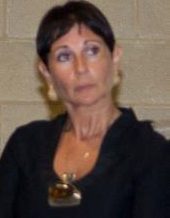 Giornalista Professionista esperta in Viticoltura, Enologia e Agroalimentare. È laureata in Scienze Agrarie presso l’Università di Padova. Ha lavorato nella redazione de L’Informatore Agrario, allacciando e consolidando le relazioni con i ricercatori e con centri di ricerca e sperimentazione italiani. Ha organizzato in seno al Vinitaly convegni di taglio tecnico ed economico sul settore vitivinicolo e le pubblicazioni ad esso dedicato; ha curato una ricerca triennale sul settore vitivinicolo e seguito progetti di editoria speciale, come il «Progetto Euvite». Ha collaborato con il Consorzio per la Tutela dei Vini Valpolicella. Nel 2010 ha scritto due volumi della collana «I love Vino» e nel 2013 l’appendice del libro di ricette «Cucchiaio d’oro» sulla qualità di molti alimenti. Dal 2014 ha organizzato e moderato diversi convegni tecnici e viaggi di aggiornamento per viticoltori. Nel 2015 è stata ammessa all’Accademia della Vite e del Vino. Dal 2016 collabora come freelance con diverse testate del settore vitivinicolo e agroalimentare (Corriere Vinicolo, Winenews, Food&Beverage, VVQ, Barolo&co). È vicepresidente delle Donne della Vite, associazione senza fini di lucro che ha contribuito a fondare. Ha ideato il format “Vino&Paesaggio, appuntamento al buio” con cui le Donne della Vite ha partecipato al Vinitaly 2016. Per l’Associazione segue anche l’ufficio stampa.
Giornalista Professionista esperta in Viticoltura, Enologia e Agroalimentare. È laureata in Scienze Agrarie presso l’Università di Padova. Ha lavorato nella redazione de L’Informatore Agrario, allacciando e consolidando le relazioni con i ricercatori e con centri di ricerca e sperimentazione italiani. Ha organizzato in seno al Vinitaly convegni di taglio tecnico ed economico sul settore vitivinicolo e le pubblicazioni ad esso dedicato; ha curato una ricerca triennale sul settore vitivinicolo e seguito progetti di editoria speciale, come il «Progetto Euvite». Ha collaborato con il Consorzio per la Tutela dei Vini Valpolicella. Nel 2010 ha scritto due volumi della collana «I love Vino» e nel 2013 l’appendice del libro di ricette «Cucchiaio d’oro» sulla qualità di molti alimenti. Dal 2014 ha organizzato e moderato diversi convegni tecnici e viaggi di aggiornamento per viticoltori. Nel 2015 è stata ammessa all’Accademia della Vite e del Vino. Dal 2016 collabora come freelance con diverse testate del settore vitivinicolo e agroalimentare (Corriere Vinicolo, Winenews, Food&Beverage, VVQ, Barolo&co). È vicepresidente delle Donne della Vite, associazione senza fini di lucro che ha contribuito a fondare. Ha ideato il format “Vino&Paesaggio, appuntamento al buio” con cui le Donne della Vite ha partecipato al Vinitaly 2016. Per l’Associazione segue anche l’ufficio stampa.
Consorzio Vignaioli del Trentino
Lorenzo Cesconi, Presidente
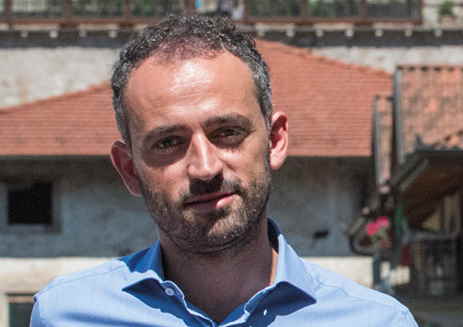 Laureato in Scienze della Politica e dei Processi Decisionali presso l’Università degli Studi di Firenze. Nel 2015 ha assunto il ruolo di responsabile dell’allora Associazione Vignaioli del Trentino, poi trasformatasi in Consorzio Vignaioli del Trentino, di cui ora e Direttore. Dal 2020 il Consorzio gestisce anche la segreteria amministrativa nazionale della Federazione Italiana Vignaioli Indipendenti (FIVI), della cui gestione è responsabile. È vicesindaco del Comune di Lavis.
Laureato in Scienze della Politica e dei Processi Decisionali presso l’Università degli Studi di Firenze. Nel 2015 ha assunto il ruolo di responsabile dell’allora Associazione Vignaioli del Trentino, poi trasformatasi in Consorzio Vignaioli del Trentino, di cui ora e Direttore. Dal 2020 il Consorzio gestisce anche la segreteria amministrativa nazionale della Federazione Italiana Vignaioli Indipendenti (FIVI), della cui gestione è responsabile. È vicesindaco del Comune di Lavis.
Associazione enologi del Trentino
Goffredo Pasolli, Presidente
 Direttore tecnico azienda Vinicola Valdadige e azienda Gaierhof. Ha conseguito il diploma di enotecnico presso l’Istituto Agrario di San Michele nel 1990. Dopo una breve esperienza lavorativa in Toscana, vendemmia 1990, ha lavorato con il ruolo di enotecnico presso l’azienda agricola Marina Danieli nei Colli Orientali in Friuli. Dalla vendemmia 1994 ha operato come enotecnico presso il Gruppo Togn a Roverè Della Luna, Azienda Vinicola Valdadige, Gaierhof e Azienda agricola Maso Poli, assumendo il ruolo di responsabile tecnico seguendo i vari aspetti della produzione sia viticola che enologica. È presidente di Assoenologi sezione Trentino e consigliere nazionale. Membro da diversi anni delle commissioni Doc Trentino, Valdadige e Trento Doc, membro del gruppo tecnico di lavoro accertamento prezzi uve e vini CCIAA di Trento. Rappresentante per la provincia di Trento e Bolzano Federazione di prodotto settore vino per Confagricoltura.
Direttore tecnico azienda Vinicola Valdadige e azienda Gaierhof. Ha conseguito il diploma di enotecnico presso l’Istituto Agrario di San Michele nel 1990. Dopo una breve esperienza lavorativa in Toscana, vendemmia 1990, ha lavorato con il ruolo di enotecnico presso l’azienda agricola Marina Danieli nei Colli Orientali in Friuli. Dalla vendemmia 1994 ha operato come enotecnico presso il Gruppo Togn a Roverè Della Luna, Azienda Vinicola Valdadige, Gaierhof e Azienda agricola Maso Poli, assumendo il ruolo di responsabile tecnico seguendo i vari aspetti della produzione sia viticola che enologica. È presidente di Assoenologi sezione Trentino e consigliere nazionale. Membro da diversi anni delle commissioni Doc Trentino, Valdadige e Trento Doc, membro del gruppo tecnico di lavoro accertamento prezzi uve e vini CCIAA di Trento. Rappresentante per la provincia di Trento e Bolzano Federazione di prodotto settore vino per Confagricoltura.
Gruppo Mezzacorona
Luca Rigotti, Presidente
 È laureato in Giurisprudenza ed è Perito agrario. È imprenditore nel settore viticolo. È anche Presidente della Mezzacorona Sca, Presidente della controllata Nosio Spa, di cui è stato consigliere fin dalla Fondazione. È inoltre presidente di altre società all’interne al Gruppo Mezzocorona. È membro del Consiglio di Amministrazione, del Comitato Esecutivo e Vice Presidente per il settore agricolo della Federazione Trentina della Cooperazione, Vice Presidente Vicario della Camera di Commercio di Trento e Vice Presidente del consorzio Vini del Trentino Ha molti incarichi nel movimento cooperativo italiano e trentino. È Commendatore dell’Ordine al Merito della Repubblica Italiana.
È laureato in Giurisprudenza ed è Perito agrario. È imprenditore nel settore viticolo. È anche Presidente della Mezzacorona Sca, Presidente della controllata Nosio Spa, di cui è stato consigliere fin dalla Fondazione. È inoltre presidente di altre società all’interne al Gruppo Mezzocorona. È membro del Consiglio di Amministrazione, del Comitato Esecutivo e Vice Presidente per il settore agricolo della Federazione Trentina della Cooperazione, Vice Presidente Vicario della Camera di Commercio di Trento e Vice Presidente del consorzio Vini del Trentino Ha molti incarichi nel movimento cooperativo italiano e trentino. È Commendatore dell’Ordine al Merito della Repubblica Italiana.
IBMA Italia
Vittorio Veronelli, Vice Presidente
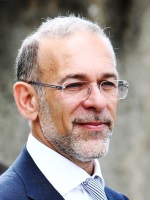 È amministratore delegato di CBC Europe, la filiale italiana della multinazionale giapponese CBC Group, attiva nel biocontrollo con la sua divisione BIOGARD® e altre società in tutto il mondo. BIOGARD® è al servizio della produzione agricola con la più ampia gamma di prodotti di biocontrollo unici in Italia e in tutta Europa. La CBC collabora sin dagli anni '80 alla commercializzazione e allo sviluppo di prodotti di biocontrollo a base di feromoni fabbricati dalla ShinEtsu Chemicals Co. Ltd., leader mondiale in questo settore. Ha una formazione in Elettronica, è entrato nel Gruppo CBC nel 1988 come Direttore Generale dell'a sede italiana e ha iniziato a lavorare nel biocontrollo dal 1989, quando alcune delle prime formulazioni commerciali per la confusione sessuale per la difesa contro gli insetti sono apparse nel mercato italiano. È entrato all'IBMA nel 1998 partecipando attivamente all'organizzazione come componente del Comitato Esecutivo e ha ricoperto il ruolo di vice presidente di IBMA Global per 12 anni. Attualmente è a capo del gruppo nazionale italiano di IBMA.
È amministratore delegato di CBC Europe, la filiale italiana della multinazionale giapponese CBC Group, attiva nel biocontrollo con la sua divisione BIOGARD® e altre società in tutto il mondo. BIOGARD® è al servizio della produzione agricola con la più ampia gamma di prodotti di biocontrollo unici in Italia e in tutta Europa. La CBC collabora sin dagli anni '80 alla commercializzazione e allo sviluppo di prodotti di biocontrollo a base di feromoni fabbricati dalla ShinEtsu Chemicals Co. Ltd., leader mondiale in questo settore. Ha una formazione in Elettronica, è entrato nel Gruppo CBC nel 1988 come Direttore Generale dell'a sede italiana e ha iniziato a lavorare nel biocontrollo dal 1989, quando alcune delle prime formulazioni commerciali per la confusione sessuale per la difesa contro gli insetti sono apparse nel mercato italiano. È entrato all'IBMA nel 1998 partecipando attivamente all'organizzazione come componente del Comitato Esecutivo e ha ricoperto il ruolo di vice presidente di IBMA Global per 12 anni. Attualmente è a capo del gruppo nazionale italiano di IBMA.
Tasks of the Steering Committee
The purpose of the Steering committee is to strengthen relationships with external stakeholders in the design and evaluation of the course programme.
In particular, as the programme unfolds, the Steering committee:
- examines the opportunity to modify the course programme to adapt it to external and/or internal innovative changes in relation to any issues that may have arisen;
- helps to better identify internship opportunities, evaluates completed internships, and identifies themes for dissertations and theses;
- gives opinions in order to invite external individuals as guests to lecture on professional skills, languages, or work culture.
The Steering committee plays a key role in the evaluation of the course programme, and works to improve it. The committee serves as a point of contact to discuss the level of learning achieved by students, the percentage of success and the time required to complete the course, to establish whether objectives have been reached and if the course programme was appropriate.
The Committee also examines student satisfaction in field placement and their career advancement. Among the tools used by the Steering committee in this phase are monitoring exercises performed by the University and academic associations (AlmaLaurea), and surveys carried out by companies or business organizations.
The Steering committee drafts an evaluation report that it will submit to the director of the degree programme.
The recommendations included in the evaluation report can be used to implement the changes required to improve the programme, and therefore represent the fundamental element for a successful review process.

